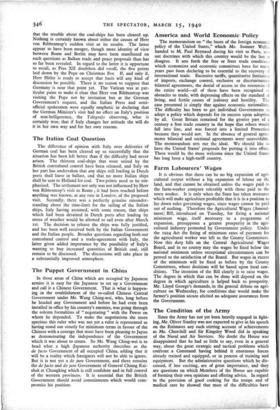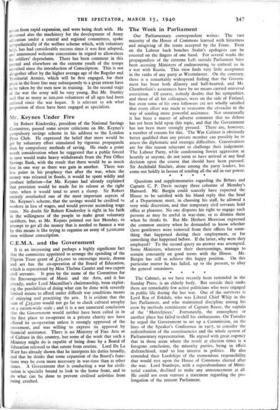The Condition of the Army
Since the Army has not yet been heavily engaged in fight- ing, Mr. Oliver Stanley was not expected to give in his speech on the Estimates any such stirring account of achievements as Mr. Churchill and Sir Kingsley Wood did in speaking of the Naval and Air Services. No doubt the House was disappointed that he had so little to say, even in a general way, about the great strategic and tactical problems which confront a Command having behind it enormous forces already trained and equipped, or in process of training and equipment. But the administrative questions which he dis- cussed, if less exciting, are of great importance, and they are questions on which Members of the House are capable of forming their own opinions and offering advice. In regard to the provision of good cooking for the troops and of medical care he showed that most of the difficulties have arisen from rapid expansion, and were being dealt with. He discussed also the machinery for the development of Army education under a central and regional committees, spoke sympathetically of the welfare scheme which, with voluntary help, has had considerable success since it was first adopted, and announced welcome concessions in regard to allowances for soldiers' dependants. There has been comment in this journal and elsewhere on the extreme youth of the troops recruited since the introduction of Conscription. This is not altogether offset by the higher average age of the Regular and Territorial Armies, which will be first engaged, for their place in the front line may subsequently to a great extent have to be taken by the men now in training. In the second stage of the war the army will be very young. But Mr. Stanley said that as many as 200,000 volunteers of all ages had been enlisted since the war began. It is relevant to ask what proportion of these have been engaged as specialists.























































 Previous page
Previous page